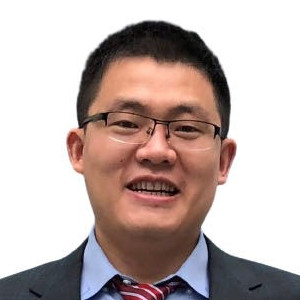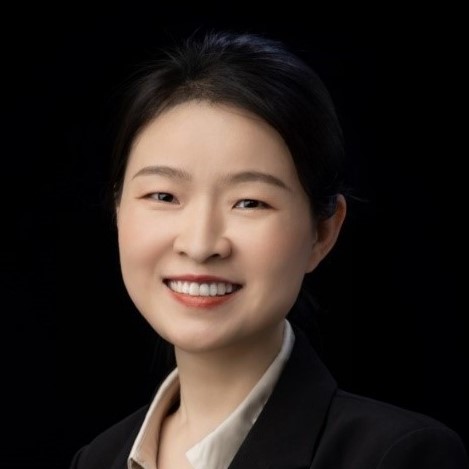Collection
Artificial Intelligence (AI) Application in Electrochemical Energy Storage (EES) Devices
- Submission status
- Open
- Open for submission from
- 01 June 2023
- Submission deadline
- 30 June 2024
With the increasing concerns on the energy crisis and climate changes, developing sustainable energy strategies and realizing a circular economy have become the main trends globally in recent decades. Different kinds of renewable energy resources, including solar, biomass, hydro, wind, tides, waves and geothermal heat, have been explored as alternatives to conventional fossil fuels to reduce the hazardous emissions and toxic pollution in our environment. However, electrochemical energy storage (EES) devices are always needed in the power generating system to efficiently transfer and use these renewable energies for remote and long-term applications, especially on portable electronics and electric vehicles (EVs). Different kinds of EES devices have been developed in the last decades, including rechargeable batteries (metal-ion batteries, metal-air batteries, flow batteries and solid-state batteries), supercapacitors, and fuel cells. Some of them have been widely used in practical industry while some are still in research progress. Among the maturely applied EES devices, lithium-ion batteries (LIBs), for which the Nobel Prize in Chemistry in 2019 was awarded, have been regarded as the most promising choice due to their superior energy density, long cycling life, and high-power output. With the acceleration of electrification in modern society, not only the number of EES devices for portable electronics and EVs grows dramatically, but also the demand of device size and shape are increasingly diverse in recent years. The requirements for EES devices are becoming more and more stringent for different practical applications, from traditional device to flexible/wearable and thin/printed diverse designs, to higher-energy-density active materials and safer electrolyte, to longer severing life and faster charging rate, to eco-friendly and cost-effective recycling. Immediate and long-term solutions and emerging technologies (i.e., Artificial Intelligence, Big data, Internet of Things, Robotics, Blockchain technology, and Cloud computing) should be urgently developed to meet the challenging needs of the EES devices chain. Among the most promising possibility is Artificial Intelligence (AI), which could offer three main benefits: firstly, AI permits the automation of important but repetitive and time-consuming tasks, such as the selection of high-energy-density material and electrolyte, the design of optimized electrode structures, the monitoring of full-device lives, and the operation of sufficient energy management systems; secondly, AI reveals insights that are otherwise trapped in massive amounts of unstructured data that once required human management and analysis, such as the charging and discharging capacity, the state of charging and the depth of discharging, the temperature inside EES devices, and the state of health for EES devices during operation; thirdly, AI can integrate thousands of computers and other resources to solve the most complex problems, such as the safety concerns of LIBs in long-term and extremely environment operations. Therefore, we would like to conduct a collection on the contribution of AI technologies to EES device technologies, covering active material database (the optimization of positive/negative materials, separator and electrolyte, electrode structure design), real-time EES device testing and detection (energy management system, thermal management of battery packs, battery life monitoring, the combination of batteries and AI in Industrial Revolution 4.0), and battery recycling (screening and dismantling of waste lithium batteries, full-range monitoring of harmful substances in batteries on the human environment), and many other related aspects.
Keywords:Electrochemical energy storage (EES) devices; rechargeable batteries; fuel cells; portable electronics and electric vehicles (EVs); artificial intelligence (AI); machine learning (ML) and deep learning (DL); natural language processing (NLP); computer vision (CV)
Editors
-
Liqiu Wang
Chair Professor Liqiu Wang, The Hong Kong Polytechnic University, China. He received his Ph.D. from the University of Alberta, and his MEng and BEng from Shandong University. He joined the Hong Kong Polytechnic University in December 2022 as Chair Professor of Thermal-Fluid and Energy Engineering. Prior to this, he was Chair Professor of Thermal-Fluid Sciences and Engineering at the University of Hong Kong. Prof. Wang has filed 40+ patents and software copyrights, given 80+ plenary/keynote lectures and over 180 invited lectures, and published 11 monographs/books, 5 book chapters, 260+ papers on international journals.
-
Jun Chen
Assistant Professor. Jun Chen, The University of California, Los Angeles, USA. He obtained his Ph.D. from Georgia Tech in 2016, and worked as postdoctoral research fellow at Stanford University until 2019. He published 2 books, 3 book chapters, 260 journal articles, and 150 of them are as corresponding authors in Chemical Reviews, Chemical Society Reviews, Nature Materials, Nature Electronics, Nature Communications and other journals. He also filed 17 US patents and licensed 1. These works were highlighted by Nature and Science 7 times and worldwide media over 1,200 times in total.
-
Ruihan Zhang
Dr. Ruihan Zhang, The Hong Kong Polytechnic University, China. He received his PhD from the Hong Kong University of Science and Technology in 2019 and then worked as a research scientist at Worcester Polytechnic Institute in the United States. Dr. Zhang has published 40 papers in Nature Communications, Nano Energy, Journal of Energy Chemistry, and other journals. He has participated in 5 projects from the DOE in the U.S. and the Hong Kong Research Grants Council and undertook 3 projects (1 TSSSU project from ITC and 2 innovation fund projects). He has filed 1 patent and published 1 book chapter.
-
Mingzhe Yuan
Professor. Mingzhe Yuan, Guangzhou Institute of Industrial Intelligence, China. He has published over 100 papers, filed over 30 invention patents and 8 software copyrights, undertook 3 national 863 projects, and participated in three projects of the National Natural Science Foundation of China. He is currently an expert in the National Science and Technology Expert Database and a science and technology review expert in Guangdong Province. He has obtained the First Prize of Science and Technology Progress Award of the Ministry of Education and the Third Prize of Guangzhou Science and Technology Progress Award.
-
Jing Zou
Associate Professor. Jing Zou, The Chinese University of Hong Kong, Shenzhen, China. She received her Ph.D. from the Pohang University of Science and Technology in South Korea in 2013 and worked as postdoctoral researcher in Pohang University of Science and Technology in 2013. She has published over 25 papers and filed one invention patent. She has undertaken 3 projects from Guangdong Province Natural Sciences Foundation, Shenzhen City Natural Sciences Foundation, and Longgang District Science and Technology Project Supporting Fund.






